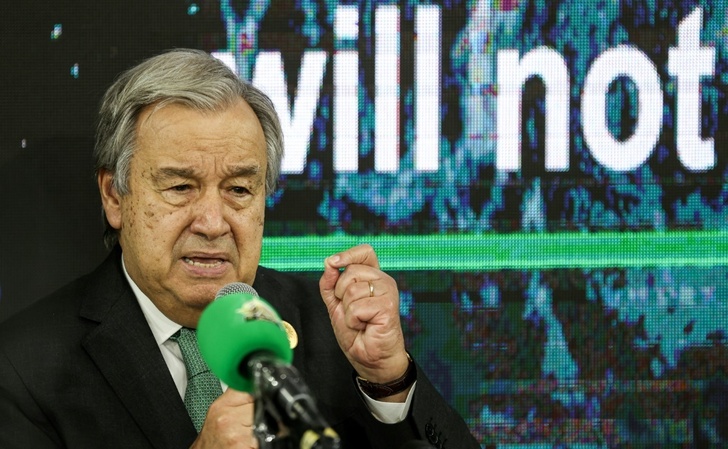The UN's chief called Tuesday for an end to a "toxic cover-up" by companies as a sweeping report said they cannot claim to be net zero if they invest in new fossil fuels, cause deforestation or offset emissions instead of reducing them.
Antonio Guterres said businesses as well as cities and regions should update their voluntary net zero pledges within a year to comply with the recommendations by UN experts, as he trained his sights on fossil fuel firms and "their financial enablers".
"Using bogus 'net-zero' pledges to cover up massive fossil fuel expansion is reprehensible. It is rank deception," he said at the launch of the report at the COP27 conference in Egypt.

The UN expert panel, convened by Guterres after UN climate talks in Glasgow last year, set its sights on drawing a "red line" around greenwashing in net zero targets from companies, cities and regions.
A huge surge in decarbonisation pledges in recent months means that around 90 percent of the global economy is now covered by some sort of promise of carbon neutrality, according to Net Zero Tracker.
"It's very easy to make an announcement that you are going to be net zero by 2050. But you have to walk the talk and what we've seen is that there is not enough action," said Catherine McKenna, Canada's former environment and climate change minister, who led the panel.

She added it was currently "extremely hard" to properly evaluate whether firms were cutting emissions and called for greater transparency.
The report lists a slew of recommendations, including calling on governments to begin putting in place binding regulations.
- 'Do the work' -

But to do that UN scientists say that global emissions must be slashed virtually in half by 2030, and after that they should be reduced to net zero by 2050.
There have been growing concerns that some firms have not aligned their efforts with the latest climate science -- by failing to account for emissions from key activities, or by saying they can make up for increasing pollution today with "carbon credits" from activities like tree planting.

"The reality is you can't offset your way to net zero," McKenna told AFP.
"You don't get an A for showing up in class. You get an A for doing the work and you can't pay someone else to do it, you have got to do it yourself."

It stressed that these should cover all greenhouse gas emissions from all activities -- including supply chains for businesses and investments for financial institutions.
- 'Watershed moment' -

Firms would also not be able to continue activities that result in deforestation and still claim they are decarbonising.
"We find that too often too many businesses continue to rely on business models that result in the destruction of natural ecosystems," said panel member Arunabha Ghosh, of the Council on Energy Environment and Water, a think tank.
"We want to show that any company doing this is working against net zero."
The report also said businesses with net zero plans should not lobby against climate action.

In September, an analysis by CDP, a non-profit that runs a global disclosure system for companies to manage their environmental impacts, found that the decarbonisation plans of major corporations from G7 nations put Earth on course to heat a potentially catastrophic 2.7C.
klm/lth/fz
© Agence France-Presse
Your content is great. However, if any of the content contained herein violates any rights of yours, including those of copyright, please contact us immediately by e-mail at media[@]kissrpr.com.
Source: Story.KISSPR.com

